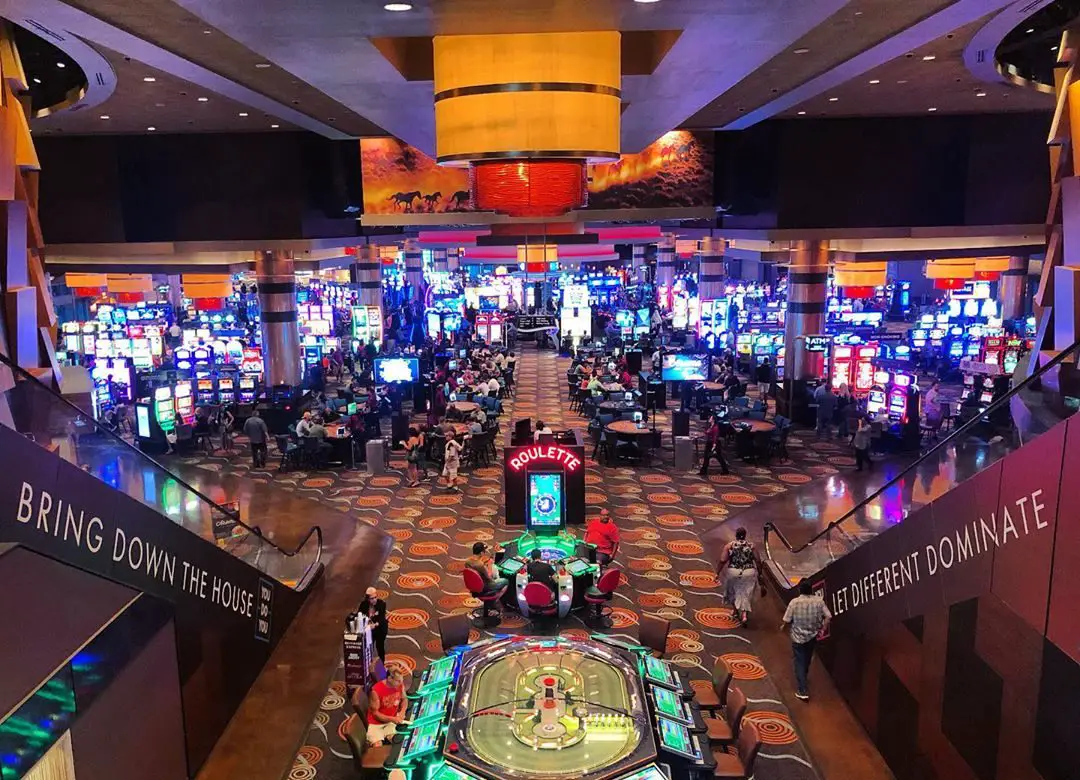
Casino experiences have long captured the fascination of individuals around the planet, becoming an essential part of both entertainment and culture. vic club From the sparkling lights of Las Vegas to the captivating experience of internet gambling, these activities evoke thrill, uncertainty, and sometimes even a sense of remembrance. They are more than just entertainments; they have woven themselves into the tapestry of human experience, influencing various aspects from cinema and songs to fashion and writing.
The allure of casino games transcends the wagering aspect, tapping into larger themes of luck, possibility, and social interaction. As players gather around a poker table or spin the roulette wheel, they engage in an ancient ritual that connects with our shared desire for adventure and unpredictability. This captivation has led to the emergence of many references in cinema, songs, and video games, showcasing how strongly entrenched these games are in popular culture. Whether it is the pressure of a traditional caper or the colorful nightlife portrayed in music videos, casino games have established a substantial role that reflects our connection with reward.
Social Importance of Casino Games
Gambling games have played a key role in social contexts throughout history. Originating from ancient societies, forms of chance were often linked to ceremonies or events. For instance, early iterations of gambling can be linked back to historic Chinese and the Roman Empire, where dice games and betting on outcomes were common pastimes. These games not only served as entertainment but also as means of social interaction, facilitating connections among people within societies.
As cultures evolved, so did the complexity and structure of gambling games. The creation of formal casinos in the 17th century, particularly in the Italian region, marked a notable shift in how games were viewed and organized. With specific spaces for gambling, the casino became a social hub where people from different backgrounds convened. This change contributed to the validation of the industry, transforming it from a mere pastime into an organized industry that shaped the economy and policy.
The impact of gambling activities on mainstream culture cannot be overlooked. As they were popularized in literature and movies, games such as poker and blackjack became symbols of chance, luck, and strategy. Iconic characters and stories have developed around these games, illustrating societal attitudes towards fortune, wealth, and immorality. This interest with casino activities has infiltrated various forms of entertainment, solidifying their place in the collective consciousness and linking them to broader cultural stories throughout the ages.
Representation of Casino Games in Media
Casino games have long been a popular subject in different types of entertainment, reflecting both the thrill and intricacies of gambling culture. Movies such as Ocean’s Eleven and Casino Royale portray individuals who navigate intense situations, showcasing not only the appeal of the casino atmosphere but also the methods and judgments that come with playing popular games like poker and blackjack. These films often dramatize the excitement of winning and the potential results of losing, encapsulating the perils involved in gambling.
Television shows have also explored the realm of casino games, often integrating them into the storyline as a setting for character arcs and conflict. Shows like Vegas depict the lives of gambling employees and patrons, highlighting the vibrant, often tumultuous energy of the casino floor. Reality shows featuring intense betting contests further emphasize the appeal of casino games, drawing viewers into the excitement and planning involved in each round. Through these depictions, media not only entertains but also stimulates conversations about luck, skill, and the character of randomness.
Gaming have increasingly incorporated gambling activities into their design, allowing players to simulate the experience of gambling without monetary loss. Titles within the landscape of online gaming often include online slot machines, poker, and other casino favorites, creating an immersive gameplay that mirrors traditional gambling. These digital representations make gambling activities accessible to a global audience, appealing to both risk-takers and those who enjoy the rush of virtual experiences. As a outcome, the portrayal of gambling activities in entertainment continues to shape public perception and cultural significance, highlighting their role in society and social context.
Impact of Gambling Activities on Society
Casino games have a significant impact on communities, influencing multiple aspects of culture and interpersonal behavior. They often serve as a venue for community engagement, where people gather to experience a common experience. Game nights with friends or visits to casinos become social activities that build connections and create memories. This collective aspect boosts the entertainment value of casino games, making them a popular choice for festivities and recreational pursuits.
Moreover, gambling activities have been depicted in countless movies, TV series, and literature, shaping views and opinions towards gaming and gaming. Icons like James Bond playing baccarat or the high-stakes poker scenes in films have cemented these games in the collective imagination. This depiction often idealizes the culture associated with gambling, attracting new players and impacting trends in both style and conduct. These portrayals can ignite curiosity and lead to a deeper investigation of the intricacies of gaming.
However, there are also adverse implications associated with the widespread appeal of casino games. The allure of quick monetary gain can lead to gambling addiction and financial troubles for some individuals. The community must contend with these issues, promoting responsible gambling and education of the risks involved. Finding a balance between the entertainment value of gambling activities with the potential for harm is crucial to ensure that they remain a positive aspect of our societal fabric.
